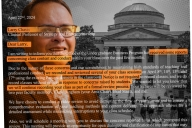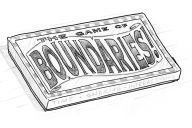You have /5 articles left.
Sign up for a free account or log in.

andresr/E+/getty images
What can we faculty members do to help students prepare for and secure gainful and meaningful employment, especially in fields that do not translate particularly easily to one specific field or distinct job description? For 10 years, in addition to my teaching and research, I have been working to answer these questions. A decade into this work, I believe that all faculty can start with the following three steps to connect coursework and career:
- No. 1: We can teach students to think about skills, not just content.
- No. 2: We can maintain strong relationships with our recent graduates and connect them with our current students.
- No. 3: We can encourage interdisciplinarity.
In this essay, I will explain the origins and evolution of this work, as well as offer a more detailed explanation of each of those steps.
This work began when I was a doctoral candidate in Yale University’s French department and a graduate career fellow in its Graduate Career Services Office. I come from a long line of businesspeople, homemakers and engineers; academe was a new language and culture to me. I had much to learn, but when I began to understand just how few permanent positions existed in such fields as language and culture, and even certain biological disciplines, I was shocked. I saw very real consequences of the trauma of devoting some six years to training for a job, only to end up not knowing where one’s next paycheck would come from or how to find continual health-care coverage.
That’s when I took on the challenge of creating something to help bridge the gap I knew existed between what was (not) happening in the classroom and what was happening in the marketplace. So, during the summer of 2011, I designed the curriculum for a series of workshops titled Turn That Ph.D. Into a J-O-B! for doctoral candidates at Yale. I began to research ways to help myself and other graduate students forge a path to careers that were both lucrative and fulfilling, whether academic or not.
That work led to the Ph.D. to J-O-B! series, which I piloted in the fall of 2011 and offered subsequently for several years. The workshop series focused on the three key steps.
Skills. A Ph.D. represents profound, long-term hard-won intellectual achievement in terms not only of content mastery but also of the skills honed. It stands to reason, then, that a doctorate can be not only intellectually fulfilling but also hold great value for many employers across a variety of sectors and industries beyond academe, precisely due to the skills honed throughout doctoral training.
Stories. As Harvard University professor and contributing writer for The Atlantic Arthur Brooks articulates so succinctly, workers thrive when they can earn their success—that is to say, when their efforts pay off, their results are rewarded and they can view their work as service to others. Conversely, when a Ph.D. candidate concludes their doctoral work and invests in a months-long job search without some sense of stability or career path at the end of it, true despair and panic can understandably ensue—with long-lasting and debilitating effects on their life.
In addition, data show that if we broadened the process of seeking gainful employment to include both academic and nonacademic work (or, as some like to call the latter category, simply “work”) and integrated this process into the doctoral student’s life sooner than the last year of academic training, it would likely be a fruitful and productive process rather than a hopeless and draining one. Indeed, by simply expanding the kinds of stories we tell Ph.D.s about where their training can lead them professionally, and by engaging them in professional development and a broader job search process two years before their funding runs dry, we set them up to be more successful, fulfilled people. They become people who stand to contribute to society armed with knowledge of the greatest intellectual achievements of their field as well as their own original discoveries.
Interdisciplinarity. Preparing graduate students to market themselves for multiple career outcomes further connects society with higher education; it should not be seen as a threat to the ethos and mission of the university. Indeed, the “life of the mind” and the “real world” do not have to exist separately. They can and, at their best, do influence one another.
How the Workshop Worked
The workshop series lasted six weeks and moved through three stages, namely, Weeks 1 and 2: Internal Research, Weeks 3 and 4: External Research, and Weeks 5 and 6: The Love Letter: Putting You and Them Together. With each successive week, sessions became increasingly participant-centered while the facilitator’s role became purposefully more minimal. The goal of the series was to take participants through the three stages so that they could develop the tools to conduct thorough, meaningful and introspective job searches both in the moment and at any subsequent stage in the future.
During the first and second weeks, the workshop guided participants through a series of reflection exercises in order to see themselves in a more objective, data-driven light. They began to discern thought and behavior patterns in order to be able to understand what specific work-related elements truly mattered for their ability to thrive professionally. They were also encouraged to use each other as resources for goal sharing, accountability, networking and information sharing.
I designed the third and fourth weeks for workshop participants to begin to research organizations, positions, institutions and companies that they found appealing, especially with their improved and clarified understanding of self in mind. Now that students knew more about themselves from the internal research component, they were better equipped to identify what kinds of jobs and organizations to target. Furthermore, that external research piece of the series offered participants tools such as networking strategies, the opportunity to develop and practice several versions of an elevator speech, and feedback on résumés, CVs and cover letters they had developed for specific jobs.
Finally, the last two weeks marked a transition during which the workshop facilitator largely faded into the background and the workshop participants were increasingly driving much of what was happening during the two-hour sessions each week. The fifth week was generally best used to workshop and peer review job materials, and the sixth week culminated in a grand finale event: a luncheon for all those who attended all sessions along with some guest panelists tailored to the group’s interests.
This series has been with me since I moved from assistant professor at Ohio Wesleyan University to my current role directing the French program at the same institution, and it has been with me as I have co-founded and now co-direct our institution’s Palmer Global Scholars Program. It has been with me as I trained faculty at our institution to incorporate a transferable skills assignment into their courses, and it is very much with me as I co-direct a collaborative project, “Humanities at Work,” which aims to connect humanities students and faculty members at the Five Colleges of Ohio with employers and employment opportunities.
My understanding of this work has evolved significantly as time has passed, as the problems before me have evolved and as I have worked on aspects of this with different populations: first, with graduate students; then, with faculty teaching undergraduates; and now, with faculty eager to connect their courses with a meaningful, reflective approach to career exploration. And yet if I had to distill all this work into immediately actionable steps for all faculty looking to connect coursework with a reflective, thoughtful approach to career exploration, the same three elements remain constant:
- Work with students to view academic work through the lens of skill sets in addition to content mastery.
- Connect students with recent graduates so they can find out what they are doing, how they found their current position and how what they learned in your department or program connects to their current work. Once students have talked with those graduates, they should tell their own stories (on posters, in videos, on departmental websites and as assignments integrated into classes) and connect with still other students who have similar career aspirations.
- Help students move beyond disciplinary boundaries and see potential connections between what might appear to be disparate fields. We are lucky to have a signature program at our university that funds many projects related to interdisciplinarity. But even without such a program, students can work with faculty mentors to make intellectual connections—often between disciplines perceived to be “employment-leaning” and those perceived to be “big questions–leaning”—through final projects, research projects, papers and even internships.
Indeed, through my various iterations of connecting academic training to the pursuit of meaningful work beyond the academy—Turn That Ph.D. Into a J-O-B!, transferable skills work with faculty and undergraduates and the “Humanities at Work” collaborative project— I’ve seen powerful and tangible examples of outcomes abound. For instance, one of the most exciting moments of offering the Ph.D. to J-O-B workshop series occurred organically when, during the external research portion of the workshop, students would naturally group together around mutual interest and/or discipline. As they researched career opportunities that valued the skills they were honing in their doctoral programs, they would share their findings with others in the group. Inevitably, that would lead to students applying for and securing positions that they would not otherwise have known existed or might have discounted as too “nonacademic” for them.
Another example comes from the transferable skills reflections that students at Ohio Wesleyan shared. A student in a theater course wrote,
My theater class this semester was built on active participation and projects. We had to work in groups often to perform scenes, direct one acts or write plays. This constant collaboration allowed me to learn how to motivate team members to work toward common goals … Another useful part of my theater class was how I learned to respond appropriately to positive and negative feedback … The more comments you hear, the more you learn how to channel this new information into your work and make it better.
And an economics student offered the following reflection:
Within my first few weeks of the course, I understood that it was going to be the most difficult course of the semester … Asking for help was terrifying because I had to admit to others that even a perfectionist, like myself, was struggling … I had to work harder in that class than I had ever expected, but it paid off in the end because I learned to take initiative and admit that I cannot solve all problems on my own. I learned how to ask for help and what it really meant to earn an A.
Furthermore, when many of us at my home institution work with students in an interdisciplinary mode, we discover surprising and inspirational research questions that can lead to fascinating career opportunities. One student, for example, pursuing a double major in premedicine and French, successfully defended an honors thesis on literary representations of the use of science as a means to justify racial discrimination toward North African immigrants in France. She now works with French-speaking doctors and patients in West Africa, bringing her cultural, scientific and linguistic training to this work.
Hence, whether reflecting on the skills honed through a particular course as a student of a faculty member, one emerges from such a reflective process with increased understanding of the value of content and skills working in tandem, and the investment in the course naturally increases. Years of this work have led me to know, without a doubt, just how beneficial a few simple changes can be. When you emphasize skills, stories and interdisciplinarity, you dare to ask your students to dig deeper, understand their work more thoroughly, think beyond the classroom and connect the practical with the erudite. This work benefits us all, and it is a joy to see the fruits of such labor.








